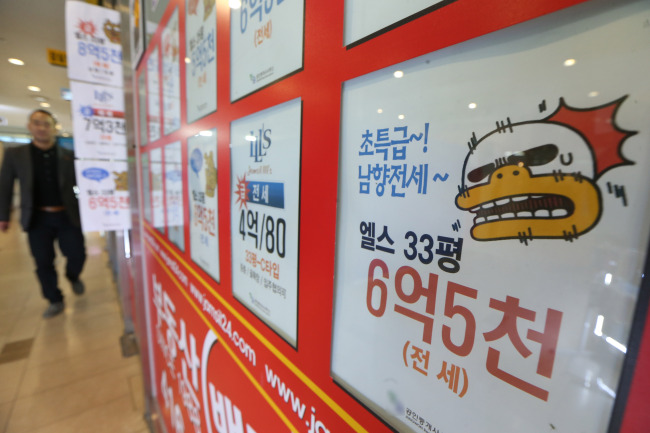Jeonse, a system that allows people to rent houses with a lump-sum deposit and no monthly payments, is a real estate system unique to South Korea.
The system arose due to the lack of mortgage availability in Korea, which pushed people to turn to jeonse as a form of private financing, and spurred by the general expectation for rising real estate prices, which allows property owners to profit without charging interest.
But some claim that the history of jeonse dates back to before industrialization and urbanization began here and perhaps even several centuries.
It was in 1959 that jeonse was given legal weight, as the government included the term in the new Civil Act.
The generally accepted theory is that the use of jeonse become commonplace in the 1960s as a compromise system that allowed people to rent houses at a lower cost than the purchasing price and real estate owners to secure seed money for investment.
“Both counterparts had something to gain from the deal, and this was the economic background that led to the creation of the jeonse system,” said Konkuk University real estate professor Son Jae-young.
Japanese investment firm Nomura Securities pointed out, in its special report last year, that jeonse performed a private financing function and contributed to Korea’s economic growth from the 1960s up to the 1990s. But the situation changed after 2000, it said, as lump-sum deposits were no longer beneficial to property owners.
Some claim that the concept of a lump-sum deposit for rent dates back to 1876, when the Joseon Dynasty signed a coercive treaty with Japan.
The claims are included in the real estate chronicle published by the Roh Moo-hyun administration in 2007, which says:
“The Byeongja Treaty of Peace, by opening up three ports, pushed the agricultural population to flock to cities and to seek new houses there, and this led to the creation of the jeonse system.”
Lim Hee-jung, researcher at Hyundai Research Institute, agrees.
“This custom persisted in Korean society for almost a century until it was officially established in the 1960s as the jeonse system as we currently know it,” he said.
There are also suggestions that the origin of jeonse dates back to the Goryeo Kingdom that ruled the peninsula from the 10th to the 14th centuries, when farmers offered their land for lease in exchange for lump sums.
But in the modern era, the future of the jeonse system is more important than its history.
“Through its recent set of housing lease policies, the government has acknowledged that jeonse and its private financing function is no longer as necessary as it used to be,” said Park Won-gab, senior adviser for real estate at KB Kookmin Bank.
Observers also showed concerns that the decline of jeonse may eliminate an important vehicle for social mobility.
“Jeonse has played a positive role, helping the middle class to acquire property and purchase their own house later,” said Ko Jong-wan, chief of the Real Estate Asset Management Research Institute.
By Bae Hyun-jung (tellme@heraldcorp.com)





![[Weekender] How DDP emerged as an icon of Seoul](http://res.heraldm.com/phpwas/restmb_idxmake.php?idx=645&simg=/content/image/2024/04/25/20240425050915_0.jpg&u=)
